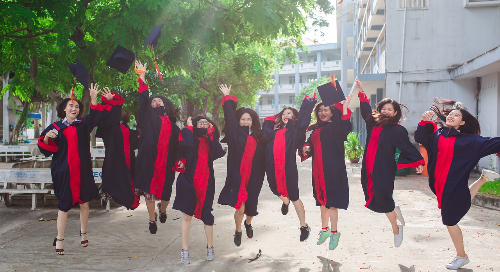caught-plagiarizing-a-college-instructor-s-what-now-tips
Fourteen percent of college students (undergraduate and graduates combined), admit to “paraphrasing or copying a few sentences or more from any source without citing it in a paper or assignment.”
Let’s say you have been called out for plagiarizing. What now?
After years of working with anti-plagiarism software, reviewing student conduct protocols, and having conversations about copying, I’d like to offer a perspective from the other side of the desk about managing the consequences.
Even if you feel you’ve been wronged by the “cheater” label, taking note of these ideas may help you craft an appropriate response
• Study the student code of conduct. You overlooked this essential document before submitting your work. Yet it provides valuable details about how your institution defines plagiarism and the adjudication process. The policy also sheds light on the range of possible penalties – some of which can be dire. The course syllabus might contain instructor-specific information.
• Before speaking with anyone, reflect on and thoroughly assess your actions. Looking back, what would your “best self” have done differently? If you don’t understand why your work’s been flagged, use the process to ask questions, learn about on-campus resources, and find out how to help yourself.
• Apologize, be polite, and attend to the matter immediately. Managing plagiarism is a time-intensive, unpleasant process for instructors and administrators. It’s in your best interest to act quickly to get the process underway and finished.
• Recognize that your intent may be considered irrelevant. There are logical-sounding reasons to go astray. Rather than cheating on purpose, people describe situations that point to ignorance about how to conduct research, work with published resources, or use citations. Procrastination and last-minute submissions are often factors as well. Instructors may want to discuss the particulars of your situation, so be prepared to spell out the short version. However, be clear that your motivation doesn’t change your anti-plagiarism score – and it might make no difference to the school.
• Avoid assuming you can reverse the process by re-doing the assignment. The opportunity to submit another document is not a privilege automatically extended to you. It may be impossible to do so, depending on the rules of your instructor or institution. You’ll find out more in the process. Do know that a re-submission means doubling your instructor’s workload – through no fault of her own. In any case, expect re-submission to come with consequences, like a reduction of a letter grade or points.
• Understand that this is not a personal matter between you and your instructor. Official protocol may direct faculty to contact administration, department heads, student affairs, or other offices. Depending on the infraction, your name could be flagged all the way up the ladder to the leadership team.
• Appreciate any related experience for what it is: A signal to do something differently.
Getting flagged for copying is a drag. Nonetheless, there can be positive outcomes and learnings. Here are a few actions to avoid this fate the next time:
Don’ts
• Don’t plagiarize.
• Don’t submit work on a single topic for more than one class. Self-plagiarism is plagiarism. Even if you have a different focus for the second course, waters get muddy quickly. Avoid the problem by coming up with an unrelated topic every time.
• Don’t assume every school defines plagiarism in the same way or has the same expectations for originality.
Do’s
• Do seek help from instructors, writing centers, librarians, or resources from other educational institutions before submitting your next task. If you need support, make it your priority to get it.
• Do assume you will be caught, thanks to the internet’s bounty.
• Do understand that no one wins, even if you “get away with it.” There’s no advantage to cheating or failing to work up to your capacity.
For Best Results
As with any other life experience, it’s up to you to find out what’s to be learned in this situation. Plagiarism could be an opportunity to reflect on why you’re in college in the first place. If you’re in school to learn, what are the lessons here?
Plagiarism could also be a chance to change direction. A colleague of mine transformed an F into an academic career.
Most importantly, in instances when “mistakes are made,” breathe deep, take the actions above, and be present and conscious for the student conduct violation process for the best results.











